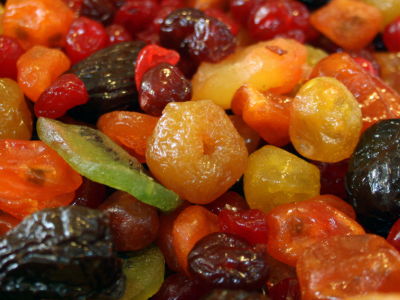What are the 6 reasons why potatoes are good for you?

Potatoes are a popular and inexpensive staple food in many countries, but in recent years they are often used in french fries and potato chips, and some people have the impression that 'potatoes are junk foods.' Maybe. However, in reality, potatoes are a good food for the human body,
Six reasons why potatoes are good for you
https://theconversation.com/six-reasons-why-potatoes-are-good-for-you-160889
◆ 1: Vitamin C
Many people have a rich image of 'vitamin C ' in citrus fruits such as lemons, but in fact potatoes are also rich in vitamin C. It seems that even a small potato of about 150g contains about 15% of vitamin C required for one day, and in fact, potatoes were the main source of vitamin C for British people in the 20th century.
Vitamin C supports immune function, contains antioxidants, and is an essential nutrient for the formation, growth, and repair of bones, skin, and connective tissue. Vitamin C deficiency can lead to scurvy , which can lead to bleeding from the skin and mucous membranes and tooth loss.
◆ 2: Vitamin B6
Vitamin B6 is involved in the metabolism of key nutrients and acts as a coenzyme that helps more than 100 enzymes function properly. Vitamin B6 is also required for the production of neurotransmitters such as dopamine and serotonin , so taking it well may improve mental health. Small potatoes are said to contain about a quarter of the recommended vitamin B6 intake.

◆ 3: Potassium
Due to the water-soluble nature of potassium, French fries and other potatoes are richer in potassium than boiled and mashed potatoes, and one baked potato with skin is one-third of the recommended daily intake. Is included. In addition, people with kidney disease have a reduced ability to remove potassium from their bodies, so it is necessary to limit potassium intake to avoid hyperkalemia.
◆ 4: Colin
Choline is a nutrient that composes and preserves cell membranes and acts as acetylcholine to transmit nerve stimuli to skeletal muscle and heart, and is abundant in potatoes next to eggs, meat, and soybeans.
Choline is an essential nutrient for the brain, nerves, and muscles, but it is known that it is difficult for some people to produce choline by themselves due to the influence of genes. One baked potato contains 10% of the choline needed per day, so potatoes are recommended, especially for pregnant women who have a developing foetation in their body, Mellor said.

◆ 5: Gentle on the intestines
When cooked potatoes are cooled before eating,
◆ 6: Gluten-free
Some people kind-of proteins that are included, such as in wheat gluten caused by gluten-related disorders have, you or cause you eat and allergic reaction or become diarrhea dishes made with wheat. However, potatoes do not contain gluten, so people with gluten-related disorders can eat with confidence.

Mellor tells people who avoid potatoes because they are concerned about weight gain that boiled potatoes have fewer calories than bananas of the same size and will not gain much weight unless fried in oil or a generous amount of butter. Explains. In addition, potatoes require less water to grow than rice, and emit less greenhouse gases from cultivation than rice, so they are also environmentally friendly foods.
Related Posts:







